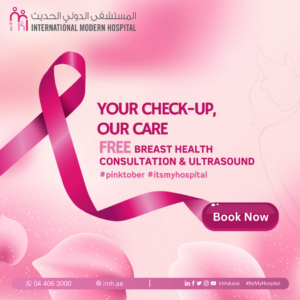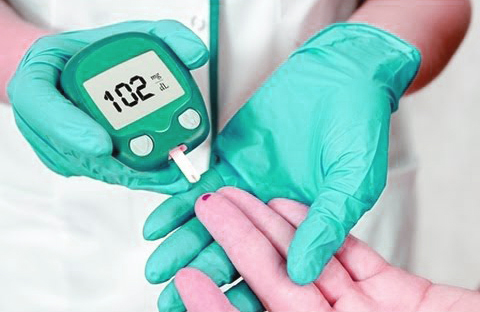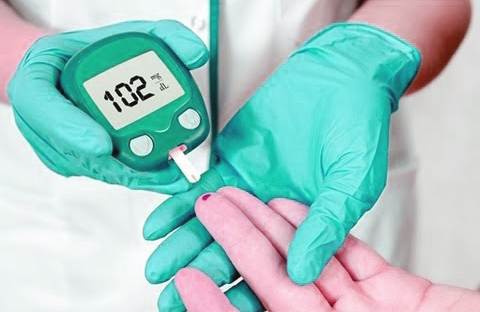Breast Self-Examination #Pinktober
At International Modern Hospital, we understand the critical importance of early detection in the battle against breast cancer. Breast Self-Examination (BSE) is a powerful tool that every individual can use to stay proactive about their breast health. Taking charge of your well-being begins with knowledge and vigilance.
Book now for FREE BREAST HEALTH CONSULTATION & ULTRASOUND

Welcome to Your Path to Breast Health
Our mission at International Modern Hospital is to empower you with the knowledge and guidance needed for effective self-examinations. We believe in the strength of awareness and early intervention, and we invite you to take the first step towards comprehensive breast care.
Here’s how to perform a Breast Self-Examination (BSE) at home:
- Stand in Front of a Mirror: Look for any changes in breast shape, size, or skin texture. Check for dimpling, puckering, or redness.
- Raise Your Arms: Inspect your breasts with your arms raised to observe any changes in contour or swelling.
- Inspect Your Nipples: Check for any discharge or inversion of the nipples.
- Lie Down and Use Your Fingers: Using your fingers, examine your breasts in a circular motion, covering the entire breast and armpit. Check for lumps, thickening, or unusual masses.
- Check while Standing or Sitting: Repeat the circular motion while standing or sitting, making sure to examine both breasts thoroughly.
🎗️ Your Breast Health Matters: Let’s Stay Vigilant Together 🎗️
Performing regular self-examinations is an essential practice for every individual. By dedicating a few minutes each month to follow a simple step-by-step routine, you can potentially identify any changes or abnormalities in your breast tissue. Early detection increases the chances of successful treatment and improved outcomes in the face of breast health concerns.
Our team of experienced gynecologists at International Modern Hospital is here to support you in your journey towards optimal breast health. We offer specialized breast checkups that encompass thorough examinations, advanced diagnostic techniques, and personalized consultations. Your well-being is our priority, and we are committed to providing you with the highest standard of care and expertise.
🔍 Consult Our Expert Gynecologists Today 🔍
We invite you to schedule a consultation with our gynecologists for a comprehensive breast checkup. Our skilled professionals will guide you through the process, ensuring a thorough evaluation and addressing any concerns you may have. Together, we can prioritize your health and well-being, ensuring a brighter and healthier future.
Take a proactive step towards a healthier tomorrow. Contact us today to book your consultation and embrace a future of empowered breast health.
Together, we can make a difference in the fight against breast cancer. 💖


